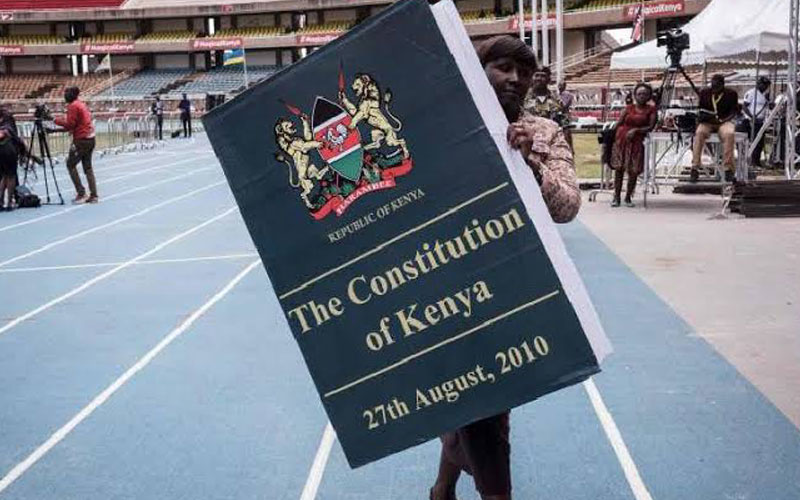State or power elites can’t win in face of anarchy

Article 25, part of the Bill of Rights of the Constitution, states that certain fundamental rights and freedoms cannot be limited. The spirit and letter of the article is to prevent the State from exercising its legitimate use of force and violence on citizens. This holds even when the citizens are alleged to have broken the law – and mocking leaders does not amount to breaking the law.
The article also guarantees freedom from torture and cruel, inhumane, or degrading treatment or punishment. It further guarantees citizens freedom from slavery or servitude, the right to a fair trial and most importantly the right to an order of habeas corpus, which simply means the right to be produced in court. Therefore, abductions constitute violation of the Constitution that some of these leaders orchestrating and supporting abductions swore to protect.
Then there is Article 33, which, barring propaganda for war, incitement to violence and hate speech – in letter and spirit – guarantees citizens the highest level of enjoyment of freedom to express themselves including, and most importantly, artistic expression. Remember, the reason most Gen Zs have been abducted is their use of art to express their dissent.
Well, since Interior Cabinet Secretary Kipchumba Murkomen assumed office, at least we have seen people arrested by police officers and booked at gazetted police stations. But still a lot needs to be done because there is no law broken by citizens protesting a punitive and draconian tax regime and demanding services for which they pay for dearly through taxes.
Suffice to note, the law as designed – in, among others, articles 33 and 34 of the Constitution – affords citizens the highest level of enjoyment of their freedom while the State is restrained in its use of State power to the most reducible level to stop the state from preventing citizens from enjoying the fruits of freedom. The State has to be the big person here and it is not too much to ask of a regime that promised to end some of these violations of the Constitution.
One of the most ironic aspects of this crisis is the involvement or silence of some leaders who themselves thrived in earlier years on challenging oppressive regimes. Some of those who even ridiculed President Moi and caricatured his sycophants are now at the table of leadership speaking against a generation whose only fault is being tech-savvy. At height of Moi’s rule, constitutional protections for free expression were weak or nonexistent, yet the “Redykyulass” trio that included now Dagoretti South MP John Kiarie pushed boundaries, becoming symbols of resistance against authoritarianism. Today, however, KJ’s voice on the issue of abductions and the shrinking space for artistic and political expression is yet another song and we must bring some of these leaders back to reality.
Recent incidents illustrate the severity of the situation. The list of victims grows longer, with some paying the ultimate price. These actions bear the hallmarks of extrajudicial measures that defy constitutional protections. Article 25’s guarantee of habeas corpus is blatantly disregarded when individuals are detained without charge or even acknowledgment of their whereabouts. This constitutes a clear violation of both national and international human rights laws.
When the State and its leaders disregard the rule of law as citizen suffer, they invite anarchy into the very fabric of society. Unbeknownst to many of these leaders, who have become increasingly loud and ignorant in their rhetoric, anarchy is not a battlefield where the State can claim victory. History teaches us that no known State or its power elites have ever triumphed against the people in the face of anarchy. To the masses, anarchy becomes the crucible where revolutions are forged and won, leaving the State’s power structures in a shambles. By ignoring the legitimate grievances of citizens, the leadership risks unleashing forces far beyond their control.
— The writer is a media studies Researcher











